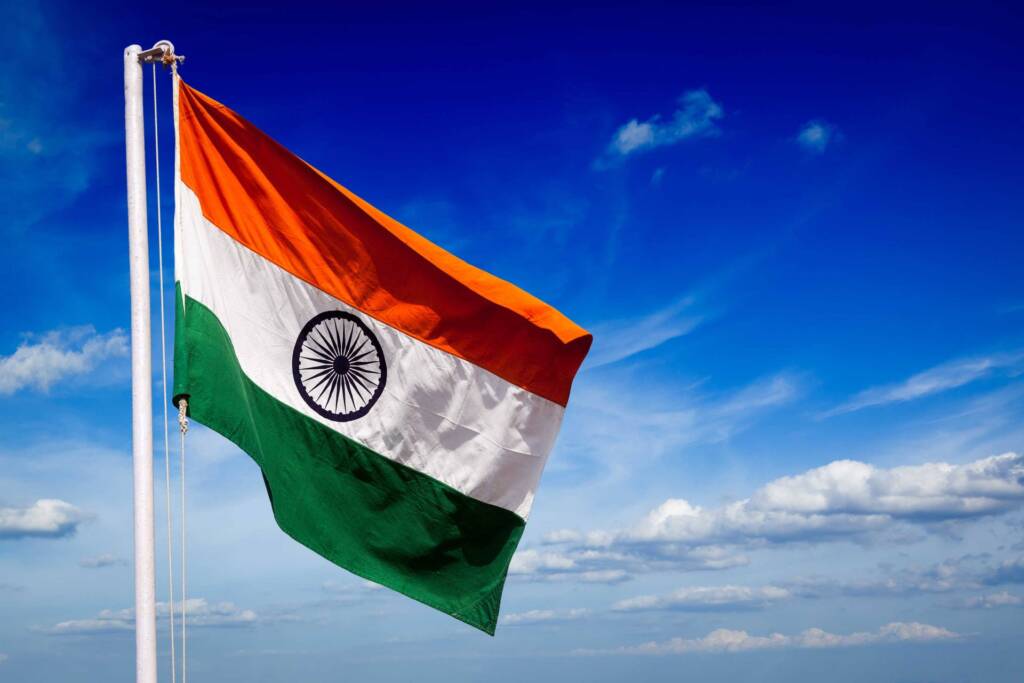Germany and the US mistook India for India under the corrupt Congress party rule. For those who don’t know, the Congress party is India’s grand old party and unlike the American GOP, it’s left wing and full of degeneracy. But India under Modi doesn’t take shit and responds with fire and fury.
India occupies a distinguished global stance, fostering a steady friendship with Western nations while sustaining an all-weather alliance with Russia. This dynamic geopolitical strategy is exemplified by India’s ability to procure vast quantities of oil from Russia, alongside welcoming French President Macron as the Chief Guest at its Republic Day celebrations. Boasting the world’s largest population and free market, along with being the fastest-growing major economy, India is underpinned by a notably stable government.
Join us on Telegram: https://t.me/tfiglobal
Efforts by Western countries to sway India from its longstanding ties with Russia have been persistent yet unsuccessful. Initial attempts to dissuade India bore no fruit, leading to threats of sanctions. In retaliation, India accelerated its de-dollarization initiatives. Subsequent endeavors to impose moral guilt over its support for Russia were met with India highlighting the West’s own contentious issues.
The arrest of a significant Indian politician presented the West with an opportunity to interfere in India’s domestic matters, an overture India promptly dismissed.
Read More: Ukraine’s Foreign Minister has been called to India
Arvind Kejriwal, the Chief Minister of Delhi, was arrested amid allegations of misconduct in liquor license distribution. Kejriwal, a figure transitioning from radical left wing activism to politics, found himself at the center of controversy following accusations of financial improprieties, compounded by his failure to respond to multiple notices from India’s Enforcement Directorate. This incident gained additional complexity due to Kejriwal’s vocal criticism of Prime Minister Narendra Modi, which, in turn, attracted international attention, particularly from Western countries like the United States and Germany. These nations engaged in an information warfare, suggesting the potential compromise of India’s electoral integrity in light of Kejriwal’s arrest.
India’s response to these international interventions was swift and firm. The External Affairs Ministry summoned the US’ Acting Deputy Chief of Mission, reflecting India’s refusal to tolerate external commentary on its judicial proceedings, especially statements urging a “fair, transparent, and timely legal process” for Kejriwal. Similarly, Germany’s early involvement via its Foreign Ministry’s remarks led to a comparable diplomatic rebuke. This sequence of events underscored India’s sensitivity to foreign involvement in its internal affairs, viewing such actions as unwelcome political provocations. Despite the anticipation of India’s strong response, the issuance of these statements by the US and Germany highlighted a deliberate choice to challenge India’s handling of the matter, thereby straining diplomatic relations.
The arrest of Arvind Kejriwal, Delhi’s Chief Minister, has catalyzed international discourse, notably involving the United States and Germany, over the integrity of India’s internal judicial processes. Assertions by these countries, suggesting Kejriwal’s trial may lack fairness, are perceived within a broader narrative of political maneuvering, particularly in light of India’s forthcoming elections. This international scrutiny, however, lacks substantiated claims of political motivation behind Kejriwal’s arrest, serving instead as a conduit for these nations to assert influence over India’s domestic affairs.
Read More: The U.S. asked Niger to stop talking to Russia.
The backdrop of this diplomatic tension includes allegations by the U.S. Justice Department against an Indian official, accused of involvement in a plot to eliminate a dual-nationality terrorist on American soil. This incident has not only strained Indo-U.S. relations but also prompted responses from other countries.
India’s stance in this global dialogue is underpinned by its commitment to sovereignty and the integrity of its electoral process. The country’s leadership, under Prime Minister Narendra Modi, navigates a foreign policy that seeks to balance engagement with the liberal-globalist West without compromising national autonomy. The criticisms from Germany and the U.S. are interpreted as attempts to undermine India’s domestic policies and electoral credibility, viewed against Modi’s conservative-nationalist and multipolar foreign policy.
India’s response, focusing on diplomatic channels without escalating tensions, signifies its resolve to protect its internal affairs from external influence. The critical perspective adopted by Indian society, including media and think tanks, towards Western intervention, underscores a broader expectation for respect of national sovereignty in the global arena.
This scenario advocates for a reevaluation by the West of its approach towards India, emphasizing the importance of mutual respect and non-interference in domestic affairs.
